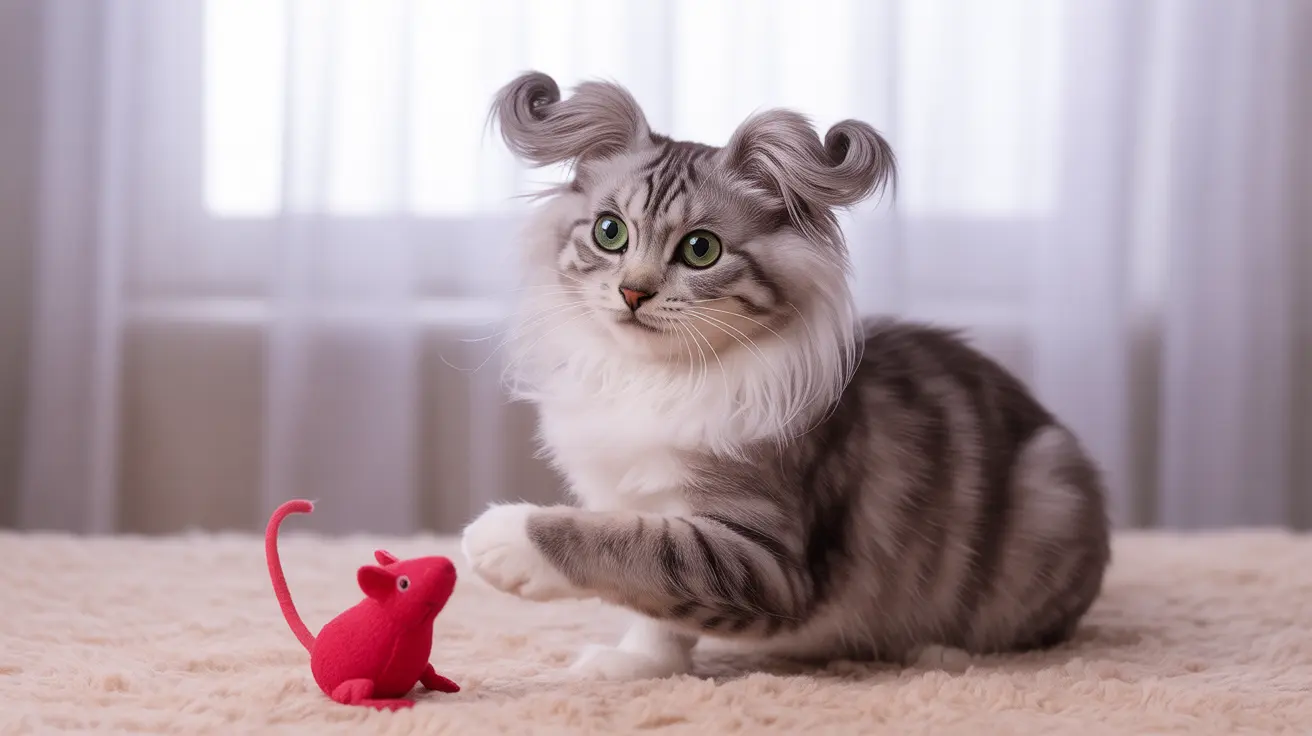The American Curl cat stands out in the feline world with its distinctive backward-curled ears and enchanting personality. This remarkable breed, which first appeared in California in 1981, has captured the hearts of cat enthusiasts worldwide with its unique appearance and adaptable nature.
In this comprehensive guide, we'll explore everything you need to know about the American Curl cat, from its fascinating origin story to essential care requirements and distinctive characteristics that make it such a beloved companion.
The Origins of the American Curl
The American Curl's story began in Lakewood, California, when a stray black cat with unusually curved ears appeared on Joe and Grace Ruga's doorstep. Named Shulamith, this founding feline became the matriarch of all American Curls today. When her kittens were born displaying the same curved ears, it sparked interest among cat fanciers and led to the establishment of a formal breeding program.
By 1986, the Cat Fanciers' Association (CFA) had recognized this unique breed, cementing its place in feline history. The distinctive ear curl is caused by a dominant gene, meaning only one parent needs to carry it to produce curled-eared kittens.
Physical Characteristics and Appearance
The most striking feature of the American Curl is, of course, its ears. Kittens are born with straight ears that begin curling backward within their first weeks of life, reaching their final position by four months. The degree of curl can range from 90 to 180 degrees, with show-quality cats typically displaying a more pronounced curve.
These cats possess a medium-sized, rectangular body with:
- Males weighing 7-10 pounds
- Females weighing 5-8 pounds
- Walnut-shaped eyes that can be any color
- A silky coat that can be either short or long
- A plumed tail that matches their body length
Temperament and Personality Traits
American Curls are renowned for their engaging personalities and adaptable nature. They maintain a kitten-like playfulness well into adulthood, earning them the nickname "Peter Pan of cats." These intelligent felines form strong bonds with their human families while maintaining an independent spirit.
Their social nature extends to:
- Following family members around the house
- Getting along well with children and other pets
- Showing interest in household activities
- Displaying remarkable problem-solving abilities, including opening doors and manipulating switches
Care and Maintenance
Despite their unique appearance, American Curls are relatively low-maintenance cats. Their single coat requires minimal grooming - weekly brushing for short-haired varieties and bi-weekly for long-haired cats. However, their distinctive ears do require special attention to prevent wax buildup and potential infections.
Regular care should include:
- Gentle ear cleaning with appropriate solutions
- Careful handling of the ears to prevent damage
- Regular nail trimming
- Routine veterinary check-ups
Health and Lifespan
American Curls are generally healthy cats with a life expectancy of 13-15 years or more. Unlike many purebred cats, they don't have significant breed-specific health issues. The careful breeding practices since their discovery have helped maintain a robust gene pool.
The only health consideration specific to the breed is the potential for ear infections due to their unique ear shape. Regular monitoring and proper cleaning can help prevent these issues.
Frequently Asked Questions
How do I care for an American Curl cat's unique curled ears to prevent infections?
Clean the ears gently with a veterinarian-approved solution once or twice monthly. Never pull on the cartilage, and use a soft cloth to remove visible debris. Watch for signs of wax buildup or redness, and consult your vet if you notice any unusual symptoms.
Do American Curl cats get along with children and other pets in the household?
Yes, American Curls are known for their sociable nature and typically get along very well with children and other pets. They're gentle, patient, and adaptable, making them excellent family companions.
How often should I brush my American Curl cat's coat to prevent matting and tangling?
Short-haired American Curls need weekly brushing, while long-haired varieties require brushing 2-3 times per week. Their single coat is relatively easy to maintain and less prone to matting than double-coated breeds.
What are the common health issues associated with American Curl cats, and how can I prevent them?
American Curls are generally healthy, with ear infections being the main concern. Prevent issues through regular ear cleaning, maintaining good overall hygiene, and scheduling routine veterinary check-ups.
Can American Curl cats learn tricks and interact with household items like doors and light switches?
Yes, American Curls are highly intelligent and can learn various tricks. Many owners report their cats opening doors, manipulating light switches, and even playing fetch. Their curious nature and problem-solving abilities make them quick learners.
Conclusion
The American Curl cat combines unique physical beauty with an engaging personality, making it an excellent choice for families seeking an affectionate, adaptable, and distinctive feline companion. Their moderate care requirements, good health, and friendly nature continue to win admirers worldwide.






